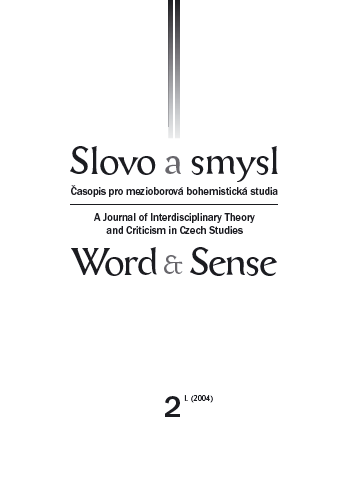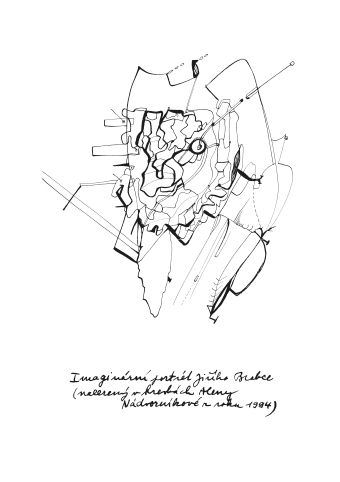Czech Studies at The University of Texas at Austin
The Czech studies program at UT Austin resides within the Department of Slavic and Eurasian Studies, which offers Bachelor’s, Master’s, and Doctorate degrees in Russian or Czech literature and linguistics. The University of Texas at Austin has a long, distinguished, and uninterrupted history in Czech studies. The language has been taught here since 1914 (a year before Russian was introduced into the curriculum). UT Austin is one of the few institutions in the United States, which still offers a Bachelor’s degree in Czech studies and the only one to offer a doctorate. More recently, the establishment of an endowed Texas Chair in Czech Studies provides for courses to be taught by distinguished scholars of Czech literature and culture. The endowment also sponsors lectures, provides assistance to deserving students for study and research, and provides support for outreach programs to the Texas Czech community in Texas. Drs. Hana Píchová and Craig Cravens teach both undergraduate and graduate courses on Czech language, literature, and culture. Dr. Píchová specializes in the literature of exile and Dr. Cravens in Czech prose stylistics and Czech-Russian literary relations. The general libraries of the University of Texas at Austin, with combined holdings of over eight million volumes, is currently ranked the fifth largest research library in the United States. Extensive collection development in the Slavic and East European field dates from the late 1960s, and the Slavic and Eurasian collection comprises over 100,000 volumes.
The UT Czech studies program also houses Czech Language News, the official newsletter of the International Association of Teachers of Czech (IATC), a non-profit scholarly organization devoted to the promotion of the study of the Czech language. The newsletter is published twice a year and presents articles and reviews concerning the Czech language and Czech language instruction throughout the world. Jára Cimrman is also a vibrant presence at UT Austin. With the express consent of Ladislav Smoljak and Zdeněk Svěrák in the Czech Republic, Dr. Cravens and his kočující společnost, the North American Cimrman Theatre, have performed several of the master’s dramatic works to great acclaim both at the university and in Prague.
Recent theses and dissertations:
• Master’s Thesis, Timothy West, 2003
Destiny as Alibi: Milan Kundera, Václav Havel and the “Czech Question” after 1968
The study attempts to understand the paradoxes which characterize Milan Kundera’s essay “Czech Destiny” and to explain them in terms of the epic/novel dichotomy elaborated by M. M. Bakhtin in his seminal work “Epic and Novel: Toward a Methodology for the Study of the Novel.” West begins by examining the historical circumstances which gave rise to the “Czech Question” – the 19th century discussion among Czech intellectuals about the meaning of the nationalist movement, its merits and its potential for success. He then addresses the events which precipitated Kundera’s essay and analyzes the text itself, as well as the polemic it inspired with Václav Havel, whose response (“Czech Destiny?”) offers a very different approach to the problem of Czech national survival. Finally, West provides his own English translation of the two essays, as well as Kundera’s “Radicalism and Exhibitionism,” in which the author defends his original thesis.
• Master’s Thesis, Katarina Dolejšiová, 2003
The study examines the poetics of Bohumil Hrabal by viewing Hrabal’s work using Mikhail Bakhtin’s concept of “carnival.” Dolejšiová begins by examining Hrabal’s two fundamental poetic “devices” – the hospodská historka and pábení, not only because they are the primary building blocks of the writer’s aesthetic, but also because they are distinctive phenomena that need to be placed in their Czech cultural context. The final section focuses on Hrabal’s most overtly carnivalesque work, Obsluhoval jsem anglického krále.
• Ph.D. Dissertation, Deborah Helen Garfinkle, 2003
Bridging East and West: Czech Surrealism’s Interwar Experiment
The study traces the cultural and intellectual history of the Czech Surrealist movement from 1934 to 1938 and compares the movement to the Surrealist movements in France and the Soviet Union. The Czechs looked to Paris and Moscow for direction, but integrated ideas from a variety of sources. Because of their special de-centered cultural position and geographic location at the heart of Europe, the Czechs became the bridge linking East and West, a center in their own right. The dissertation focuses on the Czech movement’s key figures, Vítěslav Nezval and Karel Teige. Teige and Nezval’s dialectical union of criticism and lyric functioned as the dynamic force that made Czech Surrealism one of the most highly original and vital expressions of the interwar avant-garde. But as external events exerted pressure on the group, its center could not hold. As Teige turned away from Moscow because of the Communist Party’s assault on free expression and Nezval turned away from Paris to embrace Stalin and Socialist Realism, the first wave of Czech Surrealism came to an end. Their bitter polemic on art and politics doomed the movement from the start, reflecting in microcosm the contradictions inherent in the avant-garde as a whole.
Craig Cravens


